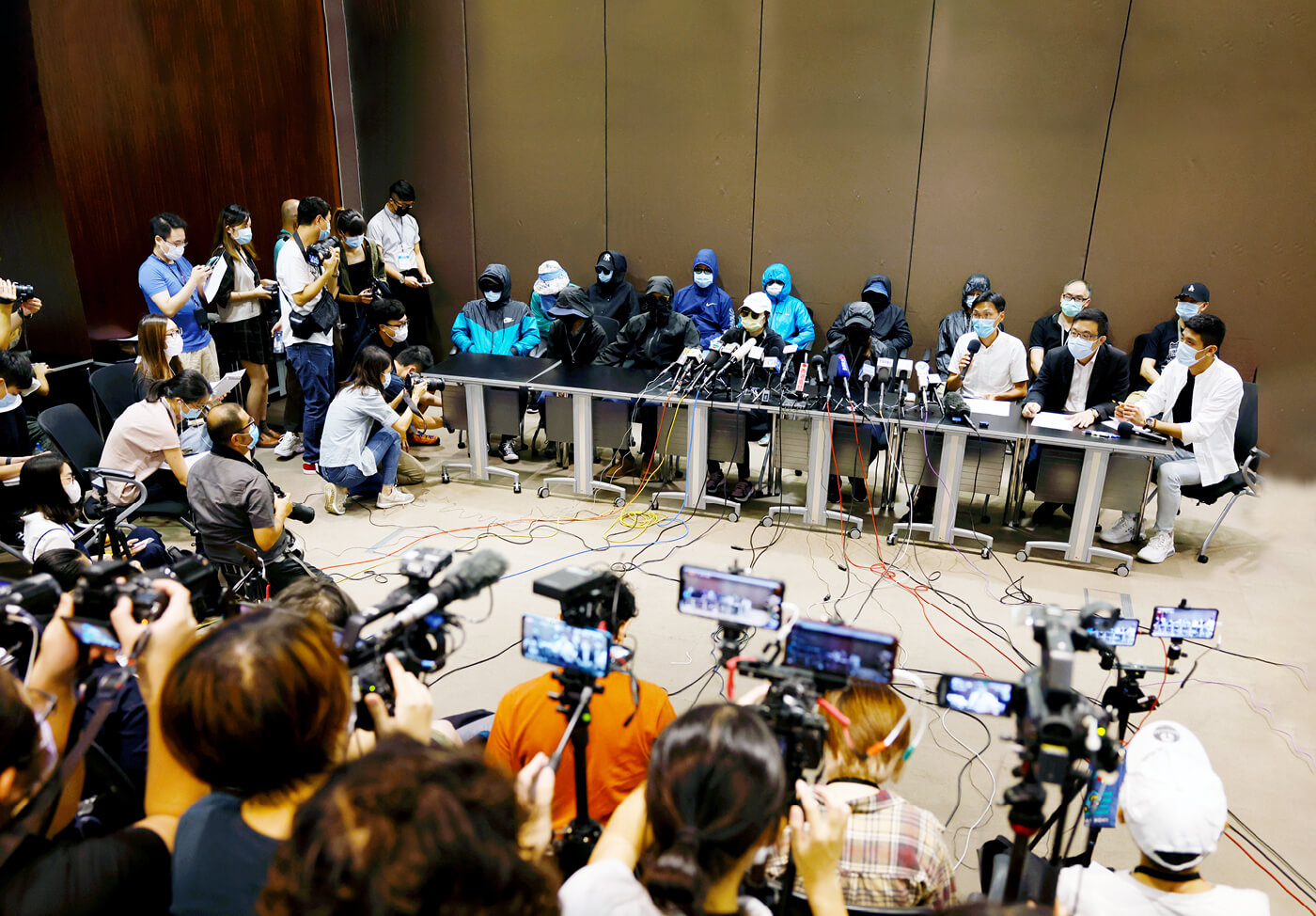Last month, Chinese authorities detained a dozen activists from Hong Kong who were trying to flee to Taiwan by boat. They have now been confirmed to be in Chinese custody with their families pleading for their return to Hong Kong at a press conference. US Secretary of State Mike Pompeo has condemned China for denying the 12 activists access to their lawyers.
The Hong Kong government confirmed that “12 local men and women aged between 16 and 33” have been arrested and are in the custody of Chinese law enforcement. On 13 September, China’s Shenzhen Yantian Police also confirmed that the 12 had been placed under criminal detention for “illegal border crossing”.
Radio Free Asia reported that the 12 young activists were arrested on a boat headed for Taiwan, a distance of roughly 373 miles (the equivalent of about 600 km), where many democracy activists have fled after the implementation of a sweeping national security law.
According to the Taiwanese government, the number of Hong Kong residents settling in Taiwan more than doubled during the first six months of 2020, compared to the previous year.
US Secretary of State Mike Pompeo said in a statement on Twitter on 11 September that the United States questions the Hong Kong leadership’s commitments to protecting its citizens’ rights and that he is “deeply disturbed” that the group of 12 have been denied access to their lawyers.
Deeply disturbed that Hong Kong democracy activists, arrested two weeks ago, have been denied access to lawyers of their choice. We hope Chief Executive Lam’s stated commitment to protecting the rights of Hong Kong residents is more than just words.
— Secretary Pompeo (@SecPompeo) September 11, 2020
In response, Chinese Foreign Ministry Spokesperson Hua Chunying tweeted that the 12 were
“not democratic activists, but elements attempting to separate Hong Kong from China.”
The families of the 12 detainees gave a press conference in Hong Kong on 12 September, calling for the Chinese authorities to transfer their relatives back to Hong Kong, to allow calls to the families and access to lawyers, and to provide necessary medication. Most wore masks, caps and sunglasses to remain anonymous, fearing repercussions for speaking out.
“I can’t sleep every day, I am very worried. Worried that (there is) no medicine for them,”
one mother said during the press conference.
“I hope Hong Kong can help them to come back (then) at least we can see him. I don’t even know if he is dead or alive.”
The new security law was imposed by Beijing just over two months ago, bypassing Hong Kong’s legislature but with the support of its government. The law criminalised acts of subversion, secession, terrorism and foreign collusion, and so far 25 people have been arrested under it.
Earlier this month, a coalition of United Nations human rights experts concluded that Hong Kong’s new national security law risks breaching multiple international laws and the declaration of human rights. The coalition of experts demanded a review of the law and requested urgent clarification or explanation of apparent breaches of international law.
Watch IOHR’s interview with Dr Anders Corr, a political risk analyst, who explains what the new law means for Hong Kong’s democracy and how the international community can intervene and prevent further human rights violations.
During the worst decades of Mao’s rule, thousands of Chinese fled south into Hong Kong. One of them was Ha Sze-yuen who escaped mainland China for Hong Kong in 1975, rowing across Shenzhen Bay in a rubber dinghy.
But 45 years later, Ha no longer sees the city as a sanctuary.
“Now I feel like freedom is being taken away gradually,”
he told CNN, referring to the ongoing crackdown on political opposition in the city by the government and Chinese authorities.

